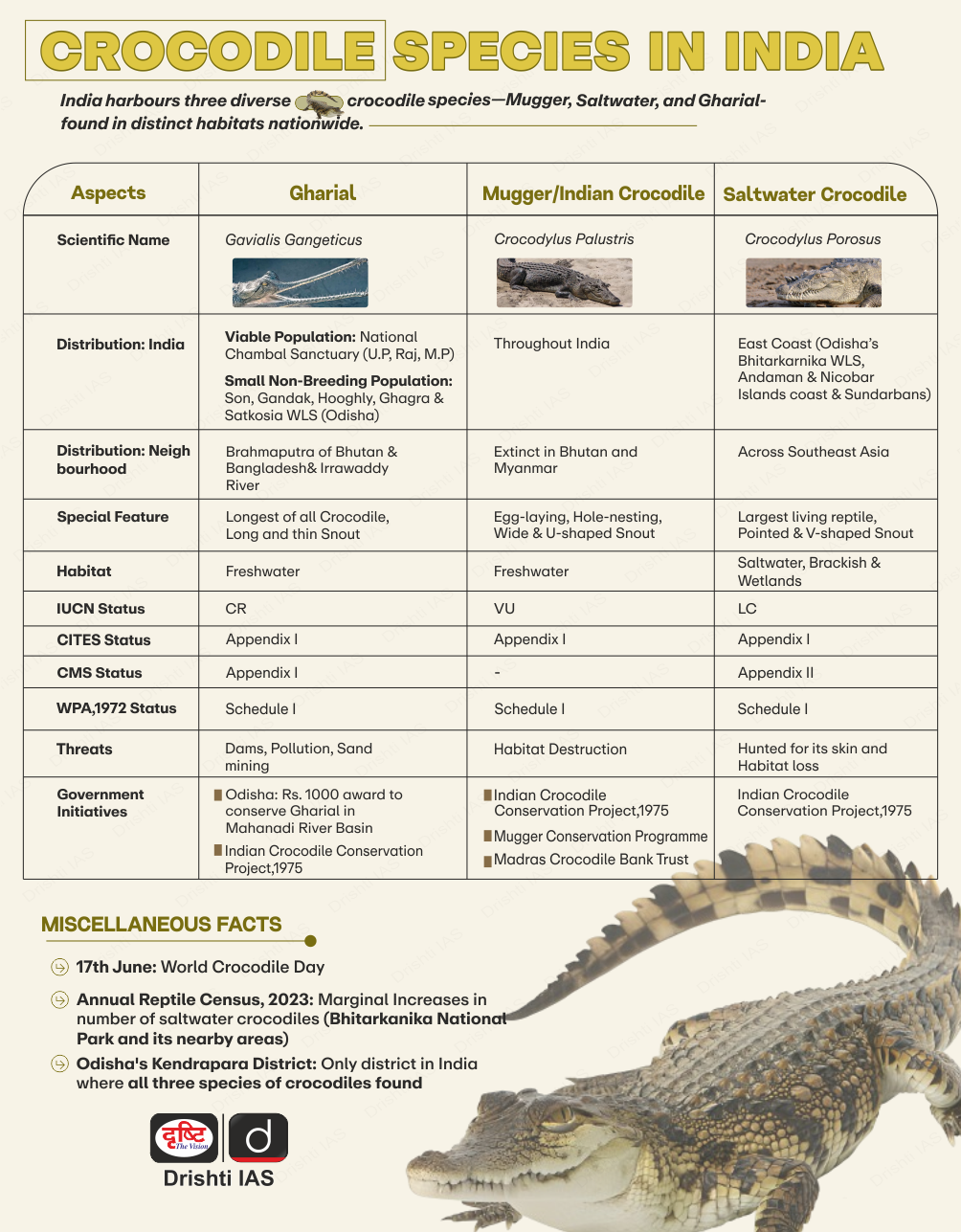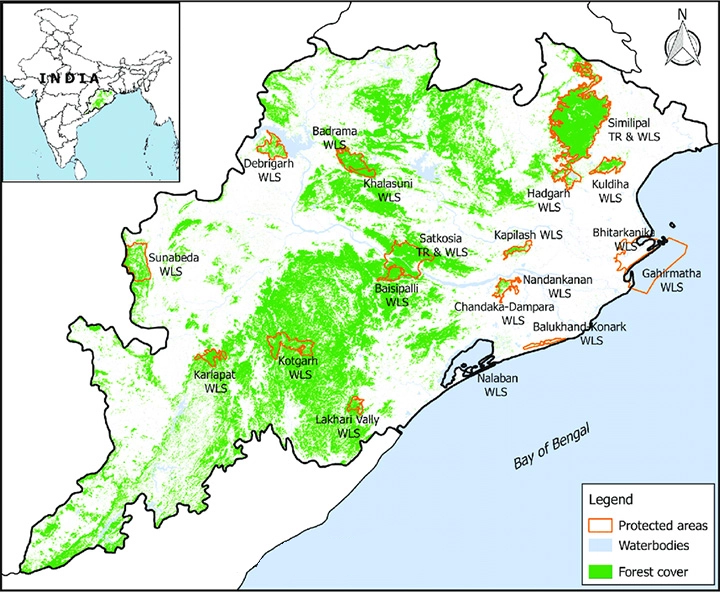Important Facts For Prelims
World Crocodile Day 2024
- 19 Jun 2024
- 3 min read
Why in the News?
World Crocodile Day is celebrated on 17th June. The day is a global awareness campaign to highlight the plight of endangered crocodiles and alligators around the world.
What is the Crocodile Conservation Project?
- About:
- The Crocodile Conservation Project was initiated by the United Nations and the Government of India, shortly after the passage of the Wild Life (Protection) Act, 1972.
- The primary objectives were to protect natural habitats, boost crocodile populations through captive breeding, and address the low survival rates of hatchlings in the wild.
- The project set up breeding and rearing centers at 34 sites in India, including Bhitarkanika, to protect and revive the country's endangered crocodilian population, particularly focusing on estuarine or saltwater crocodiles (Crocodylus porosus).
- Current Crocodile Population and Distribution:
- The saltwater crocodile population in Bhitarkanika has significantly increased from 95 individuals in 1975 to 1,811 as of the latest reptile census report (2023).
- The saltwater crocodile is now found in three primary locations in India: Bhitarkanika, the Sundarbans, and the Andaman and Nicobar Islands.
- Human-Crocodile Conflict:
- Rising crocodile numbers in Bhitarkanika have caused more conflicts with humans, resulting in 50 deaths since 2014, prompting officials to install barricades at 120 river banks to curb attacks, yet conflicts persist.
Key Facts About Bhitarkanika National Park
- Bhitarkanika National Park is spread over a vast area of 672 km in Orissa.
- It is the second-largest Mangrove ecosystem of India after Sundarbans.
- The National Park is essentially a network of creeks and canals that are inundated with waters from rivers Brahmani, Baitarani, Dhamra, and Patasala forming a unique ecosystem.
- Its proximity to the Bay of Bengal makes the soil of the area enriched with salts, and the vegetation and the species of the sanctuary are comprised of those that are mainly found in the tropical and subtropical intertidal regions.
- It is the breeding place for the Salt Water Crocodiles.
- The Gahirmatha Beach which forms the boundary of the sanctuary in the east is the largest colony of the Olive Ridley Sea Turtles.
- Bhitarkanika is also home to eight varieties of Kingfisher birds which is also a rarity.
UPSC Civil Services Examination, Previous Year Question (PYQ)
Prelims
Q. If you want to see gharials in their natural habitat, which one of the following is the best place to visit? (2017)
(a) Bhitarkanika Mangroves
(b) Chambal River
(c) Pulicat Lake
(d) Deepor Beel
Ans: (b)






